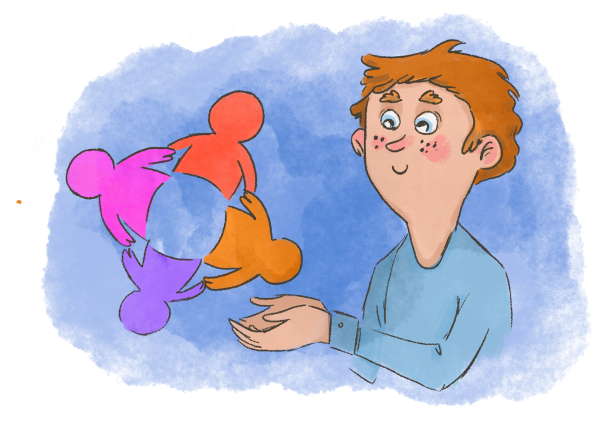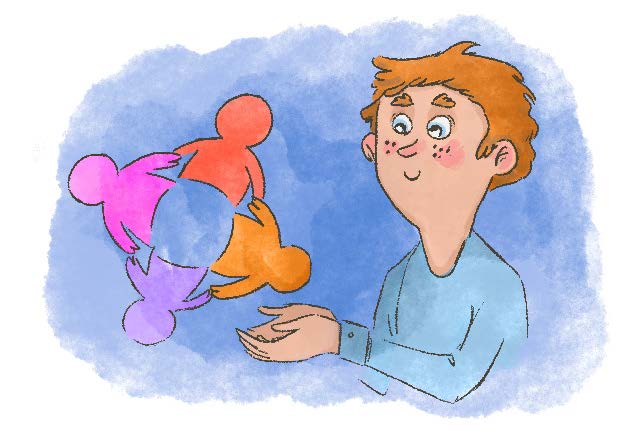Health Consumers Tasmania support the Coronavirus mobile app – with some conditions
Health Consumers Tasmania, an independent community health advocacy organisation supports any actions that can be used to make the community a safer place for us to live, particularly during the coronavirus pandemic.
The Prime Minister is encouraging the public to voluntary download a tracing app onto our phones that can be used by health authorities to identify people who may inadvertently come into contact with someone infected by the Coronavirus.
The chief executive officer of Health Consumers Tasmania, Bruce Levett believes that the app should be something the community seriously considers supporting “Health Consumers Tasmania encourages Tasmanians to download the app but our support is qualified on two things; firstly, that there is proper regulations and data security put in place to protect the privacy of those using the app, and secondly, the app remains voluntary and that it will be a decision that each Tasmanian should make for themselves and they are given all the information they need to make that decision”.
“Firstly, we want to ensure the Government authorities have in place the right checks and balances to make sure the app is only used for what it is intended to do, the data remains secure and is deleted as soon as it is not required”.
“Our concerns are that the normal checks and balances are not in place. Federal Parliament is not sitting at the moment and this removes one key form of public scrutiny for this type of thing and provides an important forum through which community concerns can be raised and dealt with”.
“For Tasmania, the Personal Information Protection Act 2004, which is a primary piece of Tasmanian legislation protecting the privacy of Tasmanians when their personal information is handled by State authorities has been suspended due to Covid-19. Again, I would feel much more comfortable in supporting this app if this legislation was reinstated as it gives Tasmanians some level of protection of their data and reduces the potential for government agencies other than Public Health to try and access the data from the app”.
“Health Consumers Tasmania also propose the State Government committee that oversights the management of the data include trusted representatives of the community, to provide integrity to its process, and assurance the data is only used for its intended purposes”.
“The issue of data security is also important, and the community does rely on the experts to be able to clearly advise the community on this”.
“Community perceptions in this regard are critical. The trouble here is that Amazon, who I understand will provide a platform to store the data, may not necessarily instil confidence within the community regarding data security – a perception the Government will need to overcome if they want to gain the communities trust.”
Another issue Health Consumers Tasmania has regarding the app is around safety, “The app will not stop people catching the virus, it will record activity after the event, so we need to understand that downloading the app will not be an excuse to undo the great work Tasmanians have done to date in staying home”.
A proportion of Tasmanians do not feel safe at the moment. A recent survey[1] conducted by Health Consumers Tasmania conducted into its communities of interest identified 20% did not feel safe and a similar number couldn’t say that they felt safe”.
“Unsurprisingly, those with a pre-existing health condition or a disability did not feel safe, but an unexpected finding from our survey was that younger people aged 18-34 felt the least safe of all the age groups”.
“There are a lot of people in Tasmania who still have to leave their home to go to work. Many are quite rightly concerned that their exposure to other people is putting them and their families at risk, whether it’s our front-line health workers, carers and support staff of the elderly and our teachers”.
“These people don’t have the choice to isolate or work from home. In order to earn an income or provide an essential service, they come into contact with other people and hence a risk of catching the virus”.
“Our survey respondents were also concerned that community transmission could be higher than reported, given the number of people who don’t show symptoms”.
“Therefore, the app needs to be considered with this in mind – how can the app be tailored to make sure our most vulnerable can be offered the same support if they come into contact with a person with the virus? What about those who can’t afford phones, could they gain access to one? The young, do they all have phones and those working in casual sales jobs like fast food outlets, will they be allowed to keep their phones on them at all times whilst working?”.
“Health Consumers Tasmania believes that ultimately it will be up to each individual Tasmanian to decide whether they download the app or not, and it is up to the authorities to provide enough easy to understand information to allow each Tasmanian to make an informed decision” concludes Bruce Levett, CEO of Health Consumers Tasmania
“Tasmanians could benefit from the proposed coronavirus tracing app as it addresses a number of concerns that the public hold so we support its intention”.
Media contact:
Bruce Levett
Chief Executive Officer
b.levett@chf.org.au
0418 503 126 www.healthconsumerstas.org.au
[1] A copy of a survey undertaken by Health Consumers Tasmania conducted between the 6-9 April, 2020 is available at www.healthconsumers.com.au.









